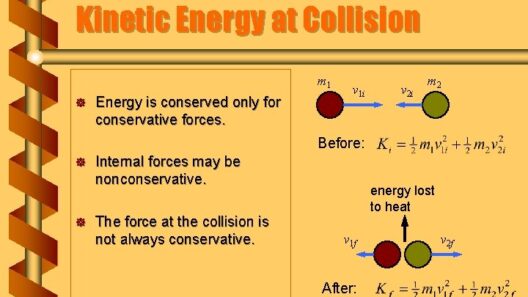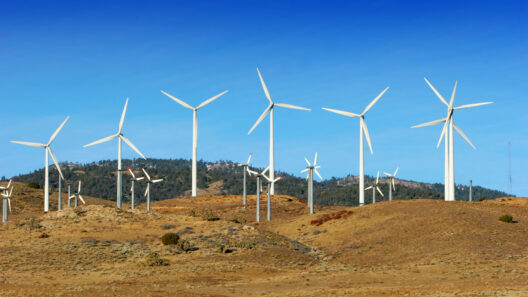In our increasingly frenetic world, the concept of conserving energy often evokes ideas of electricity usage, fuel efficiency, or reducing overall carbon footprints. However, an equally vital frontier lies within ourselves – the capability to conserve human energy. Understanding how to achieve a sustainable balance in our bodies can lead to enhanced well-being, improved efficiency, and a more harmonious relationship with the environment. In this discourse, we will explore the intricate dynamics of human energy conservation, delving into physiological mechanisms, environmental interactions, and lifestyle adjustments that can promote a more balanced existence.
The human body operates much like a finely-tuned machine, incorporating complex systems that regulate energy expenditure and storage. Essentially, energy is derived from the food we consume. Not all nutrients are created equal, and their metabolism can vary significantly. Carbohydrates, proteins, and fats each play distinct roles in energy generation. Carbohydrates are often the body’s preferred energy source. Simple sugars provide quick bursts of energy, while complex carbohydrates offer sustained energy release. Meanwhile, proteins and fats, though vital for various functions, are metabolized differently and often yield energy at a slower rate. Thus, understanding the types and qualities of the food we consume is paramount in conserving our energy.
Moreover, the importance of hydration cannot be overstated. Water is the cornerstone of every biological process within the human body. Lack of hydration can lead to fatigue, decreased cognitive function, and an overall sense of lethargy. When one is dehydrated, the body conserves energy, resulting in a marked decrease in performance and vitality. Drinking adequate amounts of water, particularly before, during, and after physical activity, ensures that energy levels remain optimal.
Physical activity, too, reveals a nuanced balance between energy expenditure and conservation. Exercise is essential for maintaining physical health; however, the type, duration, and intensity of exercise can influence energy conservation. Engaging in high-intensity workouts depletes energy reserves quickly, while low to moderate-intensity exercises, such as walking or yoga, can establish an equilibrium that preserves energy for daily functions. Moreover, incorporating regular breaks into a workout regimen can prevent excessive energy burn, allowing for recovery and maintaining overall energy levels throughout the day.
Sleep is another crucial element influencing human energy conservation. During sleep, the body undergoes restorative processes that are integral to physical and mental performance. Chronic sleep deprivation is linked to diminished cognitive capabilities and increased impulsivity. These factors not only affect personal well-being but can also translate into environmental impacts, as a fatigued individual may resort to less sustainable choices out of sheer convenience. To preserve energy, fostering sound sleep hygiene practices, such as maintaining a regular sleep schedule, creating a conducive sleep environment, and limiting screen time before bed, becomes imperative.
Cognitive energy management emerges as another critical paradigm in conserving human energy. Mental fatigue can drain physical reserves, leading to a cascade of health concerns and inefficiencies. Techniques such as mindfulness, meditation, and cognitive behavioral strategies can help manage stress and sustain mental acuity. Engaging the mind in conscious relaxation techniques allows for disciplined energy usage, making it easier to redirect power toward more valuable pursuits.
In considering the broader context, the interplay between our energy consumption andenvironmental stewardship becomes evident. The choices we make in our daily lives, from commuting methods to dietary preferences, have far-reaching consequences. By embracing a lifestyle that emphasizes local and seasonal foods, we not only support the environment but also reduce the energetic toll associated with extensive food transportation. Adopting practices such as home gardening or participating in community-supported agriculture can empower individuals, fostering a profound connection to the planet while effectively conserving personal energy.
The concept of digital energy drain, in contemporary society, warrants examination. As technology permeates every facet of life, the incessant barrage of notifications and information can exhaust mental resources. Digital minimalism promotes intentional engagement with technology, ensuring that energy expenditure aligns with personal values and goals. By setting boundaries on digital consumption, individuals can prioritize more meaningful interactions, resulting in greater energy conservation both mentally and emotionally.
In exploring human energy conservation, the wisdom of adapting our environments to our needs emerges as crucial. Designing living and working spaces to enhance wellness involves incorporating elements that promote natural light, reduce noise pollution, and provide opportunities for both physical activity and relaxation. Such harmonious designs encourage restorative behavior, often leading to an unconscious conservation of energy.
Finally, community engagement and social support are pivotal in this conversation. Participating in communal activities fosters connections and resilience, creating social networks that not only motivate individual energy conservation efforts but also amplify collective impact. As people come together to champion sustainability initiatives, the combined strengths and resources often lead to innovative solutions that transcend individual limitations.
In conclusion, conserving human energy is a multifaceted endeavor that encompasses dietary choices, hydration, physical activity, cognitive management, sleep hygiene, environmental considerations, digital interactions, and community support. By exploring these interconnected elements, individuals can cultivate a more balanced and empowered existence. Learning to conserve energy at the individual level not only enhances personal well-being but also contributes to larger ecological sustainability—an essential consideration as humanity navigates the pressing challenges of climate change. It is in this synergy between personal actions and environmental responsibility that the true potential for conservation lies.






